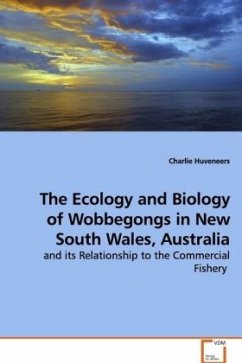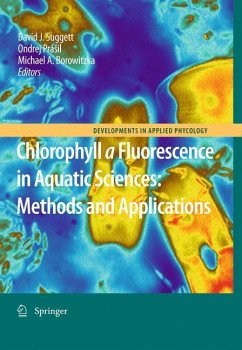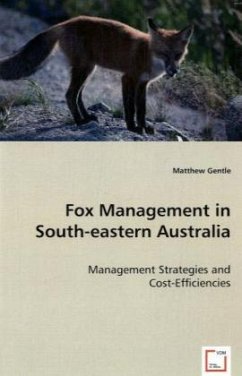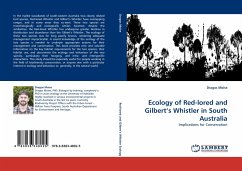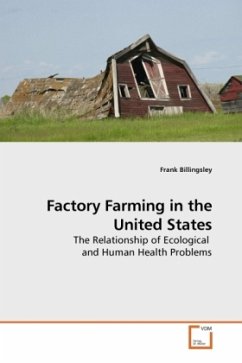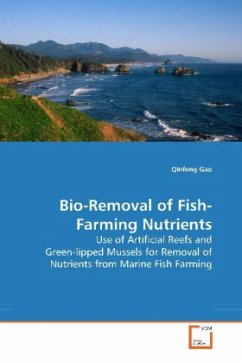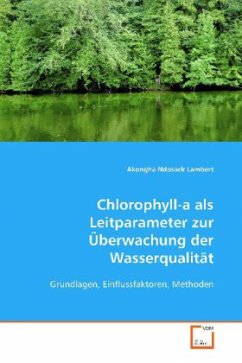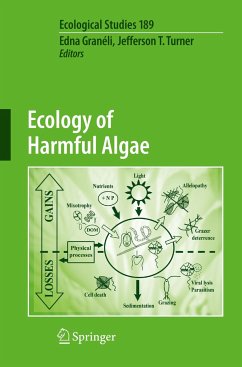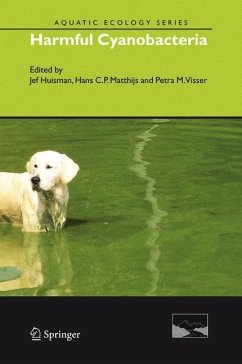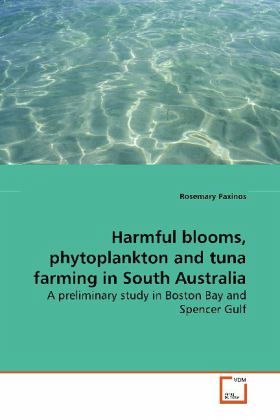
Harmful blooms, phytoplankton and tuna farming in South Australia
A preliminary study in Boston Bay and Spencer Gulf
Versandkostenfrei!
Versandfertig in 6-10 Tagen
45,99 €
inkl. MwSt.

PAYBACK Punkte
23 °P sammeln!
Interest in the effect of fish farming practices on the marine environment has arisen as there is concern that the wastes that fish farms produce may be contributing to eutrophication in coastal areas and harmful algal blooms. The focus of this book is an examination of phytoplankton distribution and abundance in relation to tuna fish farms in Boston Bay and near-shore Spencer Gulf. This is the first study in South Australia to define the short-term biomass fluctuations of chlorophyll and in vivo fluorescence, identify phytoplankton species distribution and abundance, including two potentially...
Interest in the effect of fish farming practices on
the marine environment has arisen as there is
concern that the wastes that fish farms produce may
be contributing to eutrophication in coastal areas
and harmful algal blooms. The focus of this book is
an examination of phytoplankton distribution and
abundance in relation to tuna fish farms in Boston
Bay and near-shore Spencer Gulf. This is the first
study in South Australia to define the short-term
biomass fluctuations of chlorophyll and in vivo
fluorescence, identify phytoplankton species
distribution and abundance, including two
potentially toxic dinoflagellates, and describe
patch distribution relative to tuna fish farms in
Boston Bay and the near-shore waters of Spencer
Gulf. An ecological interpretation of phytoplankton
distribution and abundance is determined. Pico- and
nanophytoplankton were often the most abundant
organisms. Diatoms and gymnoids were most common.
Season and currents predominantly influenced the
distribution of phytoplankton in Boston Bay and
Spencer Gulf. Individual species may be influenced
by inputs from the fish farms.
the marine environment has arisen as there is
concern that the wastes that fish farms produce may
be contributing to eutrophication in coastal areas
and harmful algal blooms. The focus of this book is
an examination of phytoplankton distribution and
abundance in relation to tuna fish farms in Boston
Bay and near-shore Spencer Gulf. This is the first
study in South Australia to define the short-term
biomass fluctuations of chlorophyll and in vivo
fluorescence, identify phytoplankton species
distribution and abundance, including two
potentially toxic dinoflagellates, and describe
patch distribution relative to tuna fish farms in
Boston Bay and the near-shore waters of Spencer
Gulf. An ecological interpretation of phytoplankton
distribution and abundance is determined. Pico- and
nanophytoplankton were often the most abundant
organisms. Diatoms and gymnoids were most common.
Season and currents predominantly influenced the
distribution of phytoplankton in Boston Bay and
Spencer Gulf. Individual species may be influenced
by inputs from the fish farms.



